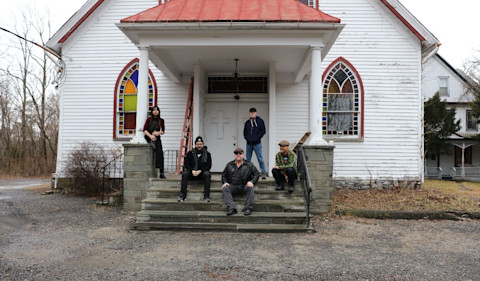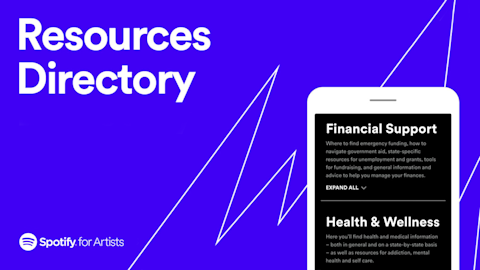Lawyers are an indispensable part of managing your career. We asked a few about when and why to find one.
Lawyers get a bad rap, and have for literally hundreds of years. “Let’s kill all the lawyers,” says Dick the Butcher in Shakespeare’s Henry VI Part 2. But the Butcher might have changed his tune if he’d ever had to parse the verbiage of a sync licensing agreement or negotiate the details of a sample clearance. The fact is, musicians have to deal with a ton of dizzying legal issues throughout their careers, which means a good lawyer can end up being one of the most valuable members of your team.
Still, young artists can hardly be faulted for an indifference to music law. After all, no one gets into making music because of an enduring love of contracts. But that’s actually why knowing when and how and why to engage a lawyer is so important: They’ll watch your legal backside so you can focus on the important work of doing what you love.
You may be surprised to learn all the ways an attorney can act as a benefactor in virtually every area of your career, from merchandising deals to touring fees to the intellectual property assigned to your compositions. Need to negotiate your manager’s commission? Leave it to your lawyer. Hiring a producer or remixer? Lawyer up because you’ll need to settle your collaborator’s advance payment and/or their share of your royalties. Does a movie or television production want to license your music? There could be major long-term royalty implications on the table, so you better call Saul.
To bring you up to speed on the basics, we spoke to three veteran music lawyers and compiled their advice below. For more goodness on building out an all-star team to help you with your career, check out this episode of our original video series The Game Plan.
Get In Touch
“Musicians don’t know what they don’t know, and that’s the scariest part,” says Colin Maher Esq., owner of Whiskey Ghost Entertainment LLC in Nashville. “When you’re signing anything or thinking of even collaborating with people, I say you should contact a lawyer.”
He stresses that there is no risk to an artist for soliciting a music attorney’s advice. “For the most part, lawyers are not going to charge you to ask a question. If [they do], then you shouldn’t be working with that lawyer.”
Think of Your Music as a Business
Vladimir Radovanov Esq., a Los Angeles-based music attorney, suggests that an artist’s team can be seen as a corporate entity. “The manager is the CEO, the business manager is the CFO, the lawyer is General Counsel, while the artist is the owner of all the shares of the company and is ultimately entitled to approve any decision that gets made.”
Maher concurs. “You’re an entrepreneur. Expect that you will be very successful with your music and look at the song that you're recording as a multimillion-dollar song, not as the $500 recording that you're paying to make, because that's when it's going to become a problem. You have to put everything in order from the very beginning.”
Never Pay to Play
Perhaps you’ve seen ads offering you the chance to perform at a prestigious local venue or at a talent show attended by “tastemakers.” The opportunity can be yours if you buy 15 tickets in advance (which you can of course sell to your friends) or if you fill out some paperwork allowing the organizers the rights to one or more of your songs.
Annie Lin, who was a touring singer/songwriter before starting her career as a music attorney in San Francisco, cautions artists to beware of these schemes. “When you’re dealing with the creative arts, the work involved can be so personal and so meaningful that sometimes artists see opportunities where there is risk,” she says.
“I don’t like to see situations where artists who might be desperate or uninformed bind themselves to obligations that force them to pay to play. Artists can pay for tools, sure, but If someone off the street comes to you and promises you the world if only you sign a contract, then I hope that you will have the resources to really consider if it is good for you.”
Hope for the Best, Plan for the Worst
“If I'm starting a coffee shop with a partner, I’m going to square away the business terms before I get involved,” says Maher, who stresses the importance of having frank conversations early on. Is your group a corporation or a limited liability company? The IRS will care once you start making money. Is every member an equal partner in your “company”? Is everyone free to quit at will? Who owns your band name?
Maher once counseled a band to put an internal agreement in place, but they never made time to determine who owned the rights, and in what proportion, to their compositions and their master recordings. After the band broke up, a bitter legal battle ensued.
“It's hard for artists to think this way because, you know, they're making art and they're making art with their friends and everything's all good. But you just have to pretend that it's not going to end well and just get [the planning] out of the way early when things are right. A lot of the time I bring this stuff up, and people get very uncomfortable. Even when they're all in agreement they’re uncomfortable, and it's because they don't want to have to discuss these things. But you don't want these issues coming up when there's millions of dollars involved.”
Deal or No Deal
Radovanov suggests that there’s a right time to do a record deal—and a wrong time. “You have to understand where you truly are in your career and have the courage to say ‘Not right now.’”
This ability to refrain from a deal, or as Radovanov puts it, “bet on yourself,” enables artists and their lawyers to find the best possible deal. “Here’s an example of a cautionary tale,” he goes on to say. “Maybe something's happening for you and you get offered a deal. You do everything you can to close the deal because you think ‘This is it. This is the one we're supposed to sign.’ And then the record comes out and it does nothing and you get dropped from the deal. Its super-demoralizing and now you're ‘damaged goods.’ If there isn't a lot of momentum— fan-based momentum—then it could be counterproductive to sign a deal.”
But by the same token, Radovanov says, “If you're on a track where everything is building, even if you turn down that deal now it'll probably come back with more behind it. Then you'll be in a better position to negotiate because you'll have more leverage.”
Lean In
Even though an artist’s counsel is, according to Lin, “bound by legal and ethical obligations to vigorously represent you,” it’s imperative that an artist participate in the course of their affairs as well. Says Radovanov, “If the artist understands the consequences of the deal, then they can take strong positions in terms of how they want their deal structured, and it allows me to create better concessions.”
“What I like to do,” says Maher, “is before I even look at a contract I ask my client ‘What do you think it says?’ or ‘What is it supposed to say?’”
Dealmaking may not be most artists’ forte, but a lot of times it’s just a matter of engaging with the process — even a small amount of homework can make a big difference. “The ultimate resource,” says Radovanov, “is Donald Passman’s book [All You Need to Know About the Music Business]. Anyone who wants to get into this business or understand it should have a copy of that lying around.
“We're empowered by our clients,” he continues. “We can do a lot when our clients are willing to take a certain stance on their own behalf versus just saying, ‘Hey man, do it for me. I don't want to understand any of this.’”
— Nate Baker
Popular Stories
video
How Julia Wolf Made It




